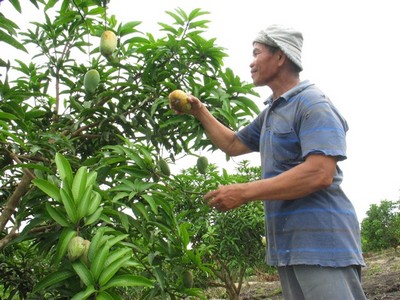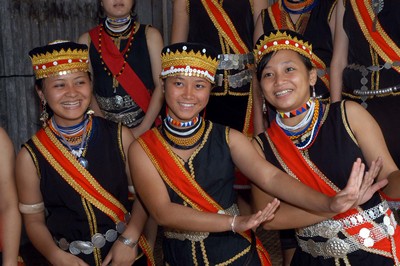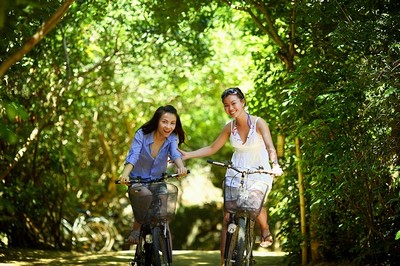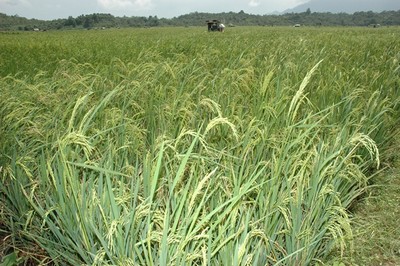One of the seven strategic trusts of the Post COVID-19 Development Strategy (PCDS) 2030 highlights economic structure.
Under this thrust, it aims to transform Sarawak into a competitive economy by increasing productivity level, developing more high value downstream activities and creating new industries through active private sector involvement.
The PCDS 2030 listed six economic sectors namely manufacturing, agriculture, tourism, forestry, mining and services to drive development in Sarawak.
This article focuses on the agriculture, tourism and social services under the plan’s outcome.
Agriculture sector
Sarawak aspires to become a net food exporter by 2030.
In 2020, the agriculture sector contributed 11.7 per cent to Sarawak economy.

Under the PCDS 2030, this goal will be achieved through commercial sector that capitalises on modern farming and global partnerships.
To achieve this, the PCDS 2030 listed catalytic initiatives to fast-track production of high value commodities crop, fisheries and livestock namely developing agroparks, swiflet cultivation, livestock area, smart farming and aquaculture zone.
In producing high value-added downstream agro-based products under the agriculture sector, PCDS will focus on palm-oil based oleochemical plant.
In establishing global partnership, the State government has set up the Sarawak Trade and Tourism Office Singapore (STATOS) for the purpose of investment going into Sarawak.
Key outcomes:
- More than 70 per cent (rice) – State food self-sufficiency level (SSL)
- More than RM2 billion – State’s surplus food export (net export)
- 100 per cent – certified and sustainable food production
Strategies:
- Shift from subsistence farming to commercial/large scale agriculture and food manufacturing
- Improve access to land and upgrade supply chain infrastructure to enhance efficiency and competitiveness
- In the mid/long term, aim to attract global partnership and access to international markets
- Enhance sustainable and double
(Source: Post COVID-19 Development Strategy publication)
Tourism sector
By 2030, Sarawak aims to be a leading destination for eco-tourism and business events in ASEAN Region, driven by empowered communities to conserve heritage, culture and biodiversity and to promote investment and development in the tourism sector.
To develop the tourism sector, the initiatives mentioned under PCDS 2030 includes increase accessibility and connectivity, develop ecotourism attractions within Sarawak’s rich natural environment, develop events, festivals and business events that are unique to Sarawak, develop signature museum and cultural products as well as providing training to tourism workforce and local communities.

These initiatives are expected to increase the number of visitors by 7.5 per cent per annum.
Key outcomes:
- Higher GDP contribution – accounting for 11 per cent by 2030
- Increased arrivals – 7.5 per cent annual growth rate in visitor arrivals with increased length of stay from 5.5 nights to 7.5 nights
- Employment generation – 25 per cent of total employment in the tourism and hospitality sector
Strategies:
- Enhance travel to and within Sarawak
- Develop Sarawak tourism products and assets by building upon its cultural, heritage and natural assets
- Improve capacity and capability of human capital
(Source: Post COVID-19 Development Strategy publication)
Social services sector
This sector aims to provide a high living standard, healthy and inclusive society with affordable and innovative service delivery for Sarawakians.
The key initiatives under social services sectors are improving medical and health services by providing general practitioners (GP) medical equipment assistance for non-urban areas, construction of State Research and Test Lab as well as the new Normah Medical Specialist.

Under the PCDS 2030, other initiatives for this sector also includes social intervention programme and community support, SarawakCare State Insurance for B40 youths not covered under Federal’s MySalam Programme, housing subsidy for eligible B40 and M40 group as well as poverty alleviation programme.
Key outcomes:
- Social Wellbeing Index and Malaysian Family Wellbeing Index Score of 8 and above by 2030
- 100 per cent coverage of basic healthcare for B40 youth
- Lift 20, 000 poor household from poverty, creating average income per month at RM2150 – RM3750
- Increase home ownership to ~75 per cent
- Assist 20, 000 homeless families
Strategies:
- Provide support to the Sarawakian public through housing and healthcare schemes
- Assist the vulnerable, risky and affected individuals (e.g. People with disabilities, elderly, etc.) through care intervention and shelter initiatives
(Source: Post COVID-19 Development Strategy publication)





